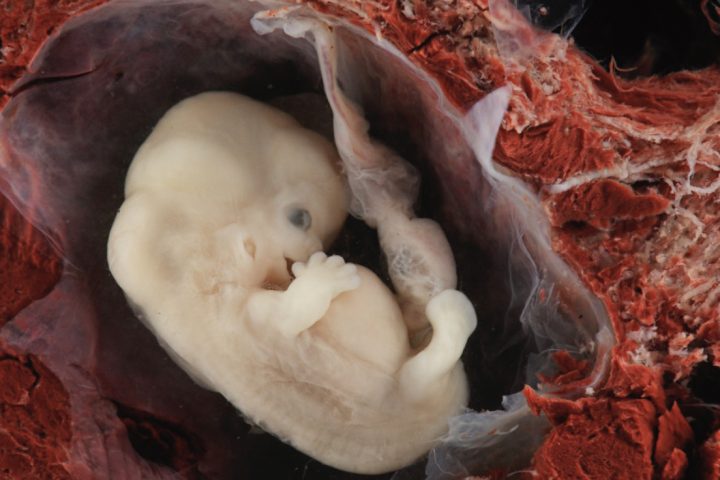(National Pulse) A synthetic embryo with cells capable of forming a brain and a beating heart was developed by researchers at the University of Cambridge using mouse stem cells. EuroNews described the effort as “yet another success in the unfolding race to develop embryos from human and mouse stem cells.”
The team, led by Professor Magdalena Zernicka-Goetz, developed the embryo model without using any eggs or sperm. The researchers used stem cells, specifically three types found in early mammalian development.
“By inducing the expression of a particular set of genes and establishing a unique environment for their interactions, the researchers were able to get the stem cells to ‘talk’ to each other,” explains a summary of the work.
“The stem cells self-organised into structures that progressed through the successive developmental stages until they had beating hearts and the foundations of the brain, as well as the yolk sac where the embryo develops and gets nutrients from in its first weeks.”
The synthetic embryo model developed by the Cambridge team is unique, as it reached a record level of development where the entire brain, including the anterior portion, began to develop.
The findings, which took researchers over a decade of work, could potentially be useful in understanding why some pregnancies fail along with developing synthetic organs for patients awaiting transplants.
The research also opens “new possibilities to study the mechanisms of neurodevelopment in an experimental model,” according to Zernicka-Goetz.
“In fact, we demonstrate the proof of this principle in the paper by knocking out a gene already known to be essential for formation of the neural tube, precursor of the nervous system, and for brain and eye development,” she continued.
“In the absence of this gene, the synthetic embryos show exactly the known defects in brain development as in an animal carrying this mutation. This means we can begin to apply this kind of approach to the many genes with unknown function in brain development.”
Writing at The Conversation, stem cell professor Megan Munsie observed:






